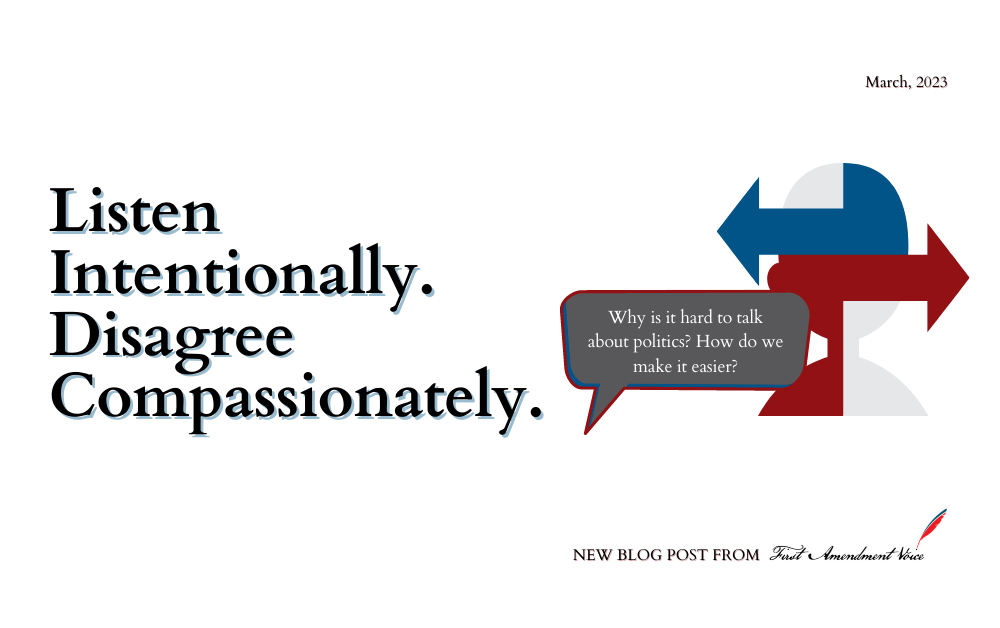The American political sphere in recent years feels bleak and disjointed, novel in its disunion. Political debates seem to have deteriorated for the vast majority of Americans, and we can feel the deep permeations of our division far beyond policy preferences and voting decisions. The ideological polarization of the modern American moment feels inescapable and unprecedented, disrupting our ability to engage with each other.
Indeed, in many regards, there is something unique about the intensity of our divisions. Political polarization is higher now than it’s been in the last 50 years, and an analysis from 2020 found that polarization in the US is increasing faster than it is in comparable nations. The statistics on public perception of polarization reflect a dismally divided nation. Ninety percent of Americans agree that there are conflicts between people who support different political parties, and half find political conversations to be stressful and frustrating. These partisan tensions have created negative feelings about the character of those on opposing sides of the political spectrum. Both Republicans and Democrats increasingly assess people on the other side as dishonest and unintelligent, and the majority of both parties regard each other as immoral. Political polarization is bleeding into broad character judgments which weaken the foundations of our democracy.
People do not feel heard or understood. A publication from the American Psychological Association highlighted that we are inclined to imagine those on the other side as being in accordance with whoever the loudest spokespeople are, but this leaves no room for the vast nuance of an individual’s beliefs. In the 2020 elections, only around two percent of Biden supporters and roughly the same number of Trump supporters felt understood by the other side.
This feeling is not unwarranted. People are in fact disinclined to extend understanding to those they disagree with. When we don’t engage with conflicting beliefs, we tend to extend empathy only to those we already agree with. Despite the readiness to assign immorality to political opponents, partisanship tends to overtake moral consistency. Recent research found that people on both sides of the aisle are more likely to excuse the behavior of their own party and see the same behavior as inexcusable from the other.
A political environment that makes discourse stressful and frustrating is fundamentally incompatible with a healthy democracy. It can only facilitate further polarization. Democracy depends on our ability to engage with each other, evaluate opposing ideas, and come to new conclusions—none of which is possible if we have decided that those we disagree with are inherently immoral before we’ve even spoken. But there is a path forward. The process of healing our political fractures requires us to be willing to engage in civil discourse, to listen intentionally, to disagree compassionately, and to look for common ground.
Research on reducing polarization tends to agree. While engaging with political opponents online has been linked with increased polarization, sustained, in-person, contact with others that is centered around a genuine exchange of ideas can provide the opportunity to reduce political polarization. The process of taking another’s perspective is linked with enduring changes in how well people understand each other. Creating common ground and focusing on common goals can also provide pathways to reducing polarization.
Like most Americans, First Amendment Voice shares a common goal: to see our democracy heal and grow. Our aim is to invite people to exercise their First Amendment rights in ways that are conducive to that goal. We hope that our workshops, webinars, and panels provide avenues for structured dialogue from a variety of viewpoints. We want to invite people to have sustained contact with others, with unique opportunities to take their perspectives, in events centered around a genuine exchange of ideas. The division of modern America is not a necessary feature of our society, and FAV believes that with your help we can build a stronger democracy.







So many great individuals in history, like Mother Teresa, Nelson Mandela, Martin Luther King, Benjamin Franklin, and Bob Woodson, have demonstrated what I believe is being articulated in this article. Self-centeredness is at the root of the intense divide along race, religion, and politics. The question is how can we as humans open ourselves to find common ground that recognizes that we’re all human, and at the base of that humanity, we seek the same outcomes. While it is healthy to differ on policy and ways forward, everyone seeks to improve life to experience liberty and to live together with a family enjoying happiness. My experience with FAV is that it creates processes and tools through which participants can learn how to work through difficult conversations and, therefore, find ways to expand the circle of advancing life for all concerned.